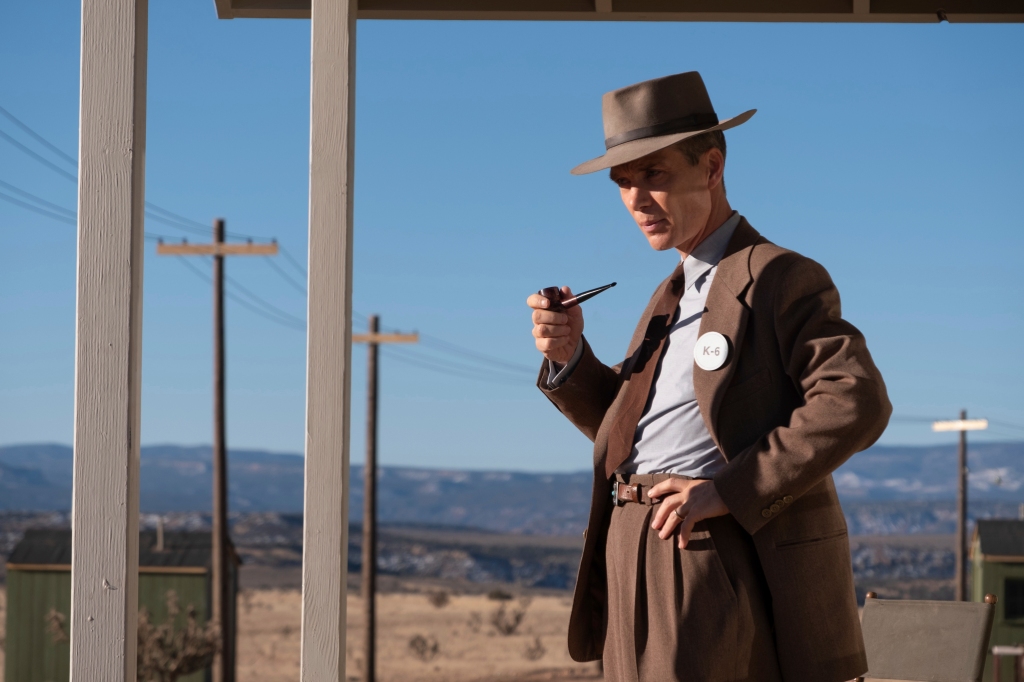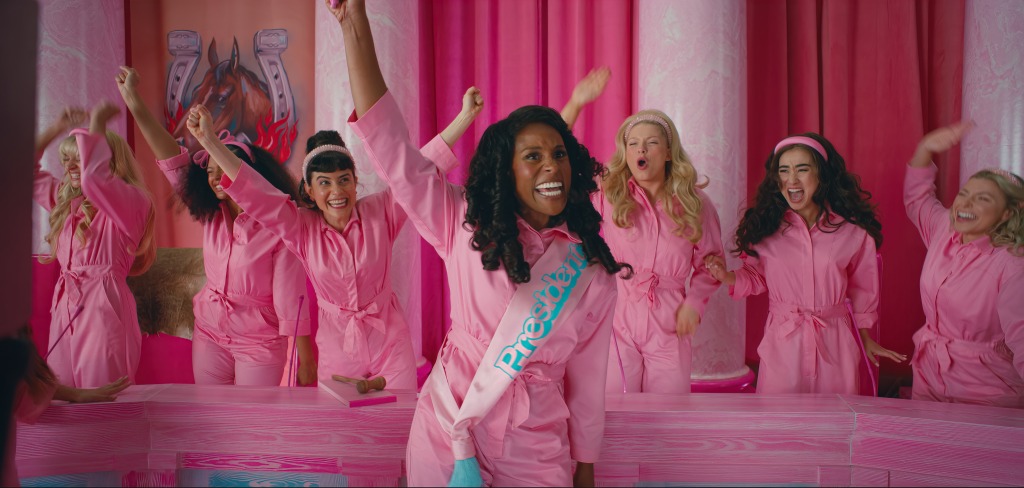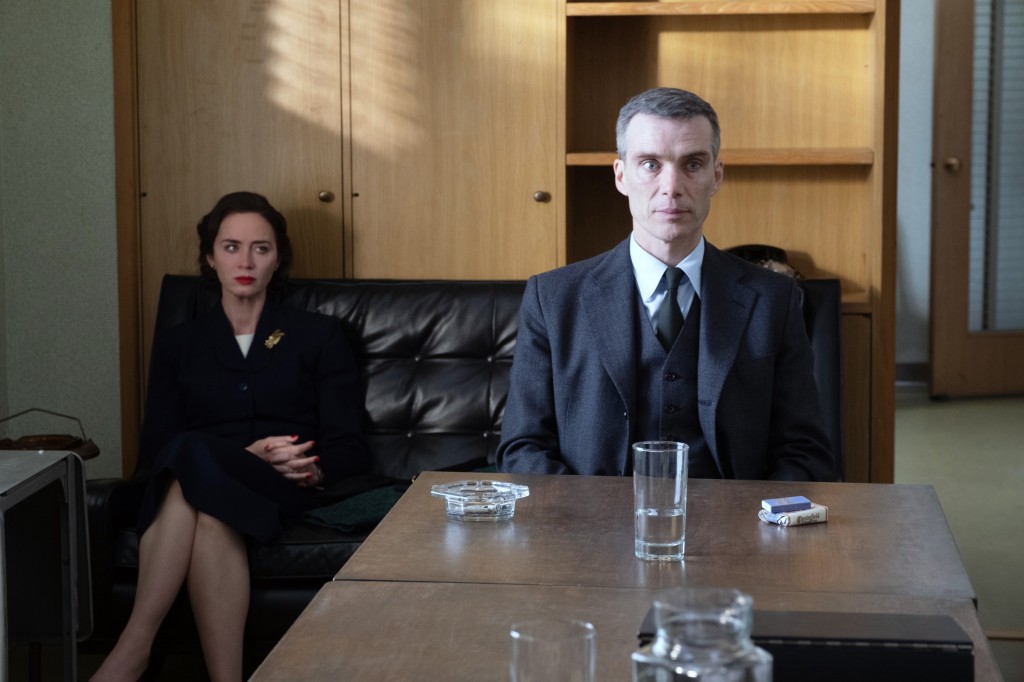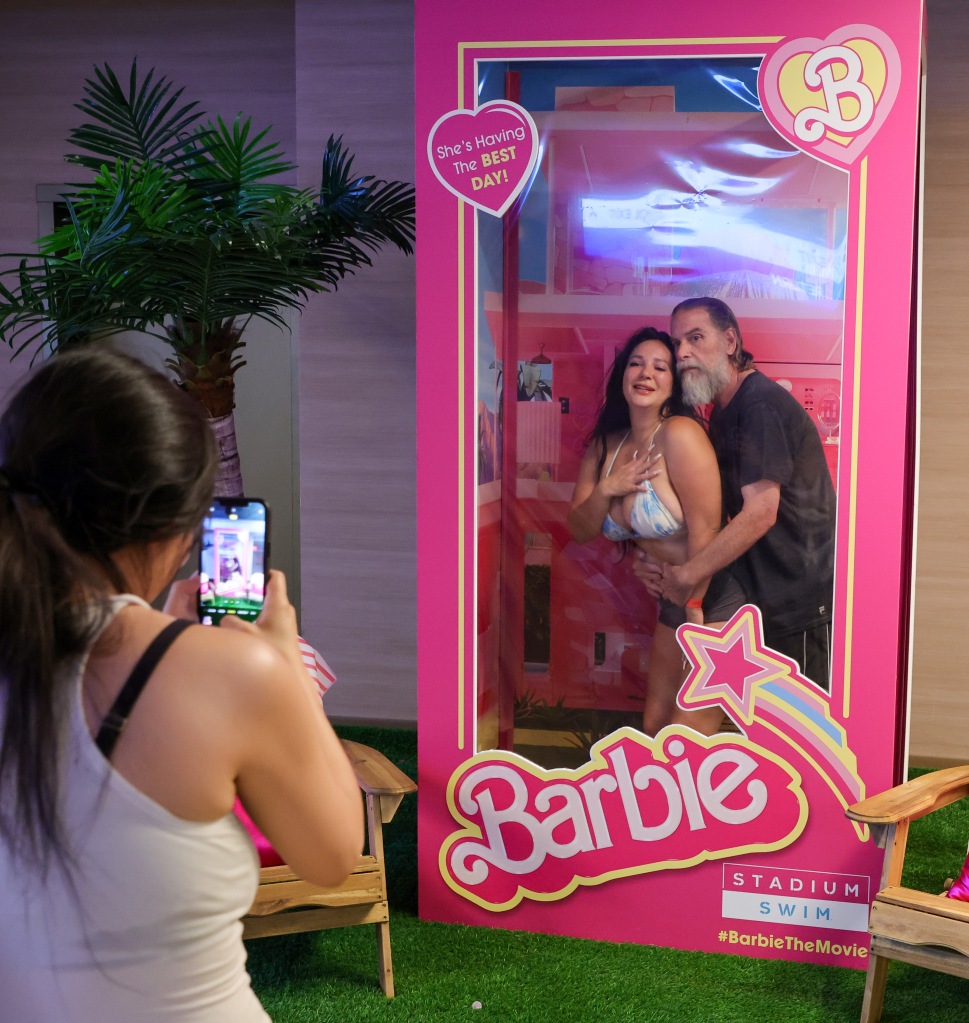The success of ‘Barbenheimer’ means nothing for the movies
So, are the movies really back?
From the celebratory headlines this past weekend, you would think so.
“Barbenheimer” — the social media nickname given to the one-two punch of Warner Bros.’ “Barbie” and Universal’s “Oppenheimer” — did boffo business at the domestic box office, grossing a combined $235 million.
“Barbie,” at $155 million, had the biggest three-day opening of the year.
And right on cue, the usual pronouncements are being made:
Audiences love originality! (Everyone has seemingly forgotten that Barbie is a super-famous doll and not from director Greta Gerwig’s imagination.)
Stories about women sell! (Just as with men’s stories, like floperoo “Indiana Jones,” sometimes they do and sometimes they don’t. “Oppenheimer,” which many online are calling sexist toward women, sold tremendously well at $80 million.)
It’s quality, stupid! (Tell that to “The Banshees of Inisherin,” “Women Talking,” “The Fabelmans” and most of the other Best Picture Oscar nominees released last year.)
However, the real takeaway of #Barbenheimer — a cinematic Brigadoon that will soon disappear into the fog — is one that is becoming increasingly obvious in the entertainment world at large: Ticket-buyers want Events.
It’s not enough for consumers to regularly attend good movies or nice Broadway shows or average concerts and then head home and go to bed. A night out increasingly requires an extremely special occasion and a huge payoff.
That is why folks will take out a 401-k loan to buy a Taylor Swift ticket but not pay $15 to go see Pixar’s “Elemental.” At the Eras tour they can dress up in costume, get a hotel room with their friends, be in the same space as a major star and post, post, post all about it.

#Barbenheimer miraculously became that perfect storm for the movies — a ready-made weekend itinerary for nostalgic millennials — and a cultural moment of its kind which will not be replicated again this year or, likely, for several years.
Everywhere I looked this weekend … was pink.
Like a dystopian novel in which all citizens are forced to wear uniforms and abandon their individual identities, Manhattan was covered in packs of rose-clad people calling each other “Barbie” with the same clone-ish squeal.

Sunday night in the East Village, I witnessed a Barbie reveler throw a plastic bottle in the garbage. Her drunk friend then yelled, “We recycle, Barbie!”
There were “Barbie” brunches and “Barbie”-themed apartment parties. I went to one in Brooklyn, and feared for my life because of my negative review of the movie. Thankfully, none of my readers — hi, mom! hi, dad! — showed up.
The gatherings were a major boon for the movie.
Of course, “Barbie” was always going to perform fine. Warner Bros.’ and Mattel’s gigantic rollout of pop-ups, collaborations and ubiquitous marketing kept it at the top of people’s minds for months. And the dolls hold a special place in the hearts of many.
But #Barbenheimer made it even bigger.

“Oppenheimer” had a strong chance going in, too, and was actually the more impressive success.
Christopher Nolan, its director, is one of a few brand-name directors who can reliably sell tickets ever since his seminal “The Dark Knight” hit theaters in 2008. With “Oppenheimer,” he’s made a hit out of an R-rated, three-hour movie about a scientist largely on the back of his own reputation. A Nolan film qualifies as an Event.
But #Barbenheimer made it even bigger.
The hashtag was a creation of an unpaid Twitter user, and the joke felt organic and cool, rather than another lame studio ploy. It made otherwise disinterested people crave being a part of a trend.

Suddenly, to partake in this double-feature — or even to see just one of them — meant you were wrapped up in a cultural phenomenon. You could post on Instagram about it and have a ready-to-go conversation topic for just about anybody you encounter.
So, what does this incredible weekend mean for the rest of the year at the movies? Absolutely nothing.
You definitely won’t see five dudes dressed as Willy Wonka at the cinema in December. God forbid.
Read the full article Here


